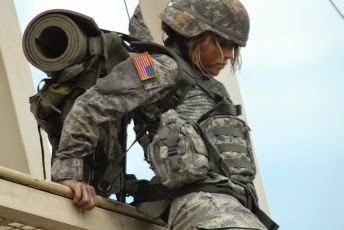Monday, September 21, 2015
Taiwan Tease
Forget about the south China Sea smokescreen - Collectivist China's real deal is a Taiwan Blitz
Each of Beijing's moves appears carefully calibrated to maximize foreign fear and minimize Chinese risk. Nothing has happened in this war of nerves that might result in a shooting war. China knows it would lose such a fight. But more important, and often missed by observers, the South China Sea is not a top priority.
China's military buildup is about Taiwan, not the South China Sea. According to reports from the Pentagon and Office of Naval Intelligence, conquering Taiwan is the core mission that drives the People's Liberation Army (PLA).
Why? Because China's authoritarian leadership is deeply insecure. Beijing views the Republic of China (ROC, or Taiwan), which exists as an independent and sovereign state, to be a grave threat to the communist party's vice grip on power. Taiwan is dangerous because it serves as a beacon of freedom for Chinese speaking people everywhere.
Taiwan is also a problem for China because it has a close defense and security relationship with the U.S. military. There are over 3,300 Department of Defense visits to Taiwan a year. And that number is growing fast. In addition, a remarkable number of Taiwanese military personnel study and train in America, probably more than any other foreign country. From Beijing's perspective, China's historic rise as a great power will not be complete until it can wrest Taiwan out of America's sphere of influence. Only then can China break through the first island chain to become a regional hegemon, dominating Japan and South Korea.
According to authoritative Chinese writings, the PLA focuses surprisingly little on the East Asian seascape. The Science of Military Strategy is the most detailed and credible document available on Chinese military thought. It takes pains to underscore the prime importance of land, not water. China's "main strategic direction" (a euphemism for supreme national objective) is the invasion and occupation of Taiwan's entire territory. Second order campaigns involve conflicts along China's 14 land borders. Here the PLA is talking mostly about war with India. Neither island disputes nor sea lanes are a critical priority.
he Science of Military Strategy makes clear that PLA ground forces would play the leading role in a Taiwan campaign. The ground forces, as a result, enjoy pride of place in the Chinese military. That's one reason why infantry, tank, and amphibious units led the way at China's recent national day parade. The PLA Navy, Air Force, and Second Artillery (China's strategic rocket troops) follow the ground forces in protocol order. Their envisioned roles are to support the Army's needs.
Each Chinese fighting service and branch considers the invasion of Taiwan their principal mission. The Science of Military Strategy reveals the operation would involve information attacks (electronic and cyber warfare), missile bombardments, airstrikes, sea blockades, and surprise amphibious landings. The ground force is expected to face the brunt of the bloody battle, fighting from the coast into Taiwan's dense urban centers and mountains. Assuming victory, the Army is also responsible for pacifying a post-war Taiwan, turning it into a Orwellian police state.
The PLA Navy's mission is to support the invasion of Taiwan. It would be responsible for executing naval blockade operations; providing air defense and transport ships for the invasion armada; shelling the coast; clearing mines and beach obstacles; and deterring, delaying, or disrupting American aircraft carrier groups.
These are all highly difficult tasks. Most of these missions are probably outside China's grasp and will be for some time to come.
The myth of reunification claims it's inevitability, in reality, nothing could be farther from the truth. The CCP's policies toward Taiwan are failing miserably. Recent polling data reveals that unification never been more unpopular in Taiwan than it is today.
Another common misperception is that the balance of military power has shifted decisively in the Taiwan Strait. If that were true, as China's propaganda machine would have us believe, the PLA could invade Taiwan anytime it wanted.
However, recent studies on Taiwan's air and naval defense capabilities reveal that the ROC military is a whole lot tougher than it generally gets credit for. China knows there is a long road ahead before it can credibly threaten Taiwan with invasion.
And Great Satan can tip the scales at any time
Subscribe to:
Post Comments (Atom)















0 comments:
Post a Comment